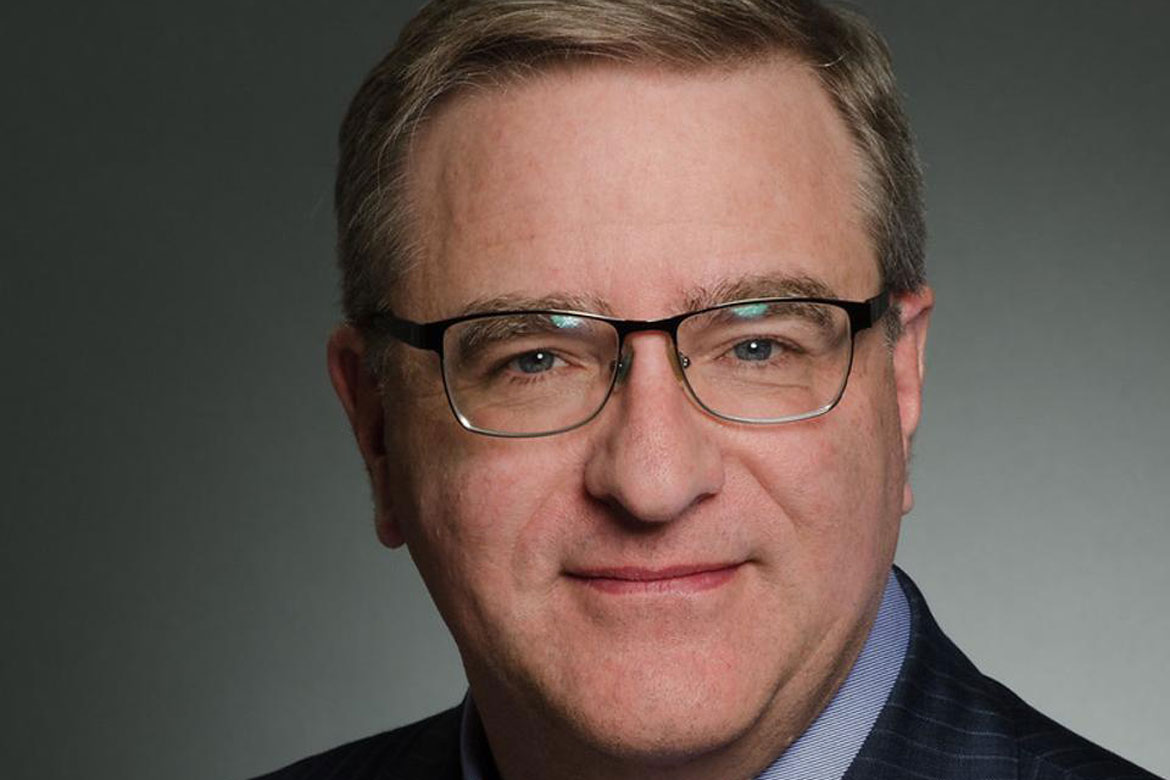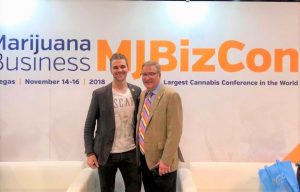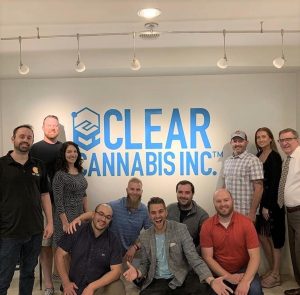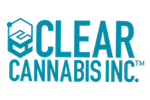
Warren Bobrow: What do you think about Colorado and the way they fit a model for the rest of the country to follow—pertaining to cannabis? What about medical? What happened?
In this blog, we take a look at various ways to ensure your website is ready to convert visitors into new leads
Rich Batenburg Jr.: My cannabis-focused investment companyoperates in several states, many of which we entered at original deployment of a legal marijuana program. While we hear about officials from new jurisdictions coming to Colorado to do research, as well as hiring regulatory consultants from Colorado, it seems like they listen and then try to reinvent the wheel. From my background in change management and process consulting with giant corporations, this is normal—albeit completely unproductive behavior.We should be able to agree on labeling, packaging and potency rules, residency requirements and taxing structures across state lines. Setting up cannabis regulation 50 different ways just creates problems for all involved. I wish other states would just plagiarize the things Colorado did right and improve upon the things they didn’t. Like most people and companies, everyone thinks “we are unique” or “our market is dramatically different.” Over my career I have worked in many industries in almost every state, and I’d estimate that 80% of business challenges, and the solutions to them are the same. It’s all about getting “buy in” from the people who are delivering the products and services. Without buy in, change just takes longer and costs more than it would otherwise.
The medical program is the precursor to any adult-use program, very simply because in order for it to be launched, a critical mass of people need to be educated about cannabis, hemp and the massive hoax the U.S. government has successfully carried out for 90 years of prohibition.
“I believe that the recreational segment, once fairly taxed and banked, will funnel a portion of profits in a more traditional fashion to research and development for medical purposes.”
Medical patients stopped registering for their cards because it’s a barrier—not everyone has a doctor or time to renew the card annually. Why not just go to the dispensary and get what they need? Opponents of cannabis in general like to believe that all medical patients just want to “get high.”
This misconception, combined with the fact that Colorado is still operating with two sets of rules, increases overall costs both to enforcement and operators—injects confusion into the minds of patients and the public.
Unfortunately, as medical patients decrease, there’s less incentive for cannabis companies to invest in R&D that’s medically motivated. Colorado is always working to bring the two programs closer together.

WB: Tell me about your company. What is your role at the company? How do you see yourself going forward over the next six- and twelve months? What are your goals?
RB: I own Cliintel Capital Management Group with my son and hold controlling interest in Clear Cannabis, Inc. and Cliintel Capital Aggressive Growth Fund IV. I also control Cliintel Capital Group LLC, which does business as Clear Colorado Group.
The main entities under the company umbrella are: Clear Cannabis Inc., which operates non-plant touching marijuana-related businesses. Clear Colorado Group, which produces and distributes The Clear-branded cannabis vape products in the state of Colorado, as well as holding a minority interest in Bonsai Cultivation, a wholesale cultivation facility also in Colorado.
Clear Cannabis Inc. licenses intellectual property related to The Clear as well as providing hardware, packaging, training, sales, marketing, merchandising, product R&D and leasing services to licensee partners in many cannabis-legal states.
I develop people and try to impart the lessons from my many, many mistakes so we don’t repeat them. I am also in charge of creating and sustaining our culture, overseeing legal as well as mergers and acquisitions. I raise money and evangelize our mission to investors.
For the next month we are building upon our recent $10 million private raise and exploring the possibility of an IPO being the first cannabis-affiliated company with “cannabis” in its name to go public, straight to NASDAQ. We’re also bringing new licensee partners on board and expanding the reach of The Clear family of products.
Beyond that, I remain focused on strategic acquisitions. Expanding our footprint in hemp and CBD is high on the priority list, as well as increasing the number of brands and products we license.
We are working to expand the reach of The Clear in six states, and intend to be in 12 by the end of 2019. We are already in California, Arizona and Colorado. We just signed with big partners in Michigan, Nevada and Oklahoma, in addition to being in late-stage negotiations with four other states.
Our ultimate goal is to be in every cannabis-legal state.
Professionally, I would like to see federal legalization of THC, the repeal of the “hot hemp” classification of plants exceeding 0.3% THC. This would enable us to merge our plant-touching and non-plant touching entities. I would also like to produce a couple of films that I have been sitting on since my production-company days.

WB: What sets you apart from your peers? How do you achieve the momentum towards excellence in the workplace? Do you have an executive assistant? Just wondering!
RB: I have had the great fortune to be involved with a number of industries across the workflow, from what I call “intention to retention.” This means from the conceptualization of the product to marketing, through sales to delivery, billing, support and upsell.
I have founded dozens of startups and consulted for many Fortune 500 companies, all while mostly staying independent of a “job job,” meaning some corporate W-2 gig.
My folks instilled in me a work ethic that you always work as though you owned the place. My father never liked what he did, whereas I’ve really enjoyed work and I never dread going to work. I like being in motion and creating efficiency.
I view the customer experience as the paramount critical component to excellence. All silos in the company workflow have some direct or indirect impact on customer experience, which is a business product in my mind.
Applying Six Sigma rigor to a positive customer experience is our way of reducing defects in that experience and therefore achieving excellence—silo by silo, employee by employee and customer by customer.
I do not currently have an executive assistant, however I have in the past. I pride myself in developing people. My last executive assistant, who will be difficult if not impossible to replace, moved on to an even bigger job opportunity.
I keep hoping she will come back someday and run a division in our company. My experience with executives in large and small companies alike is that their executive assistants are usually more capable than they are, and are mostly there to feed the executive’s ego.
WB: Do you cook? What is your favorite thing to prepare? Do you ever make anything that brings a tear to your eye when you eat/drink it? Why? Who taught you to cook? Do you have a favorite restaurant? What kind of food?
RB: Mostly I make reservations and focus on the people that I’m with instead of the food that I eat. I think I grill the best Hebrew National Cheese Dog on the planet. Though, my efforts are best spent with the humans I’m dining with.
I am partial to a few dishes, none that I make. The grilled chicken chipotle caesar salad at the Motherloaded Tavern in Breckenridge, Colorado, is special for me. It reminds me of dining with my kids when they were younger, and we were on ski trips or hanging at our condo in the summer.
My mother taught me to cook, and I retained enough to be self-sufficient. I attended a cooking class with my Vistage CEO group, where I learned about how to marinate and grill perfect chicken.
There are a few: The Charthouse in Cardiff, California, at sunset; The Palm in Denver, Colorado; Relish in Breckenridge, Colorado; Chianti in Greenwood Village, Colorado; and Del Frisco’s in Greenwood Village, Colorado. I am partial to any pasta-and-cheese-rich Italian dish, ahi tuna, crab cakes and filet mignon.
WB: If you could be anywhere in the world, right now—where would that be? Doing what? With whom?
RB: At a company party celebrating a victory or a kickoff of a new portfolio company, giving a speech thanking the many people who really made it happen with my wife, my kids and especially my teammates and their significant others and their kids.



